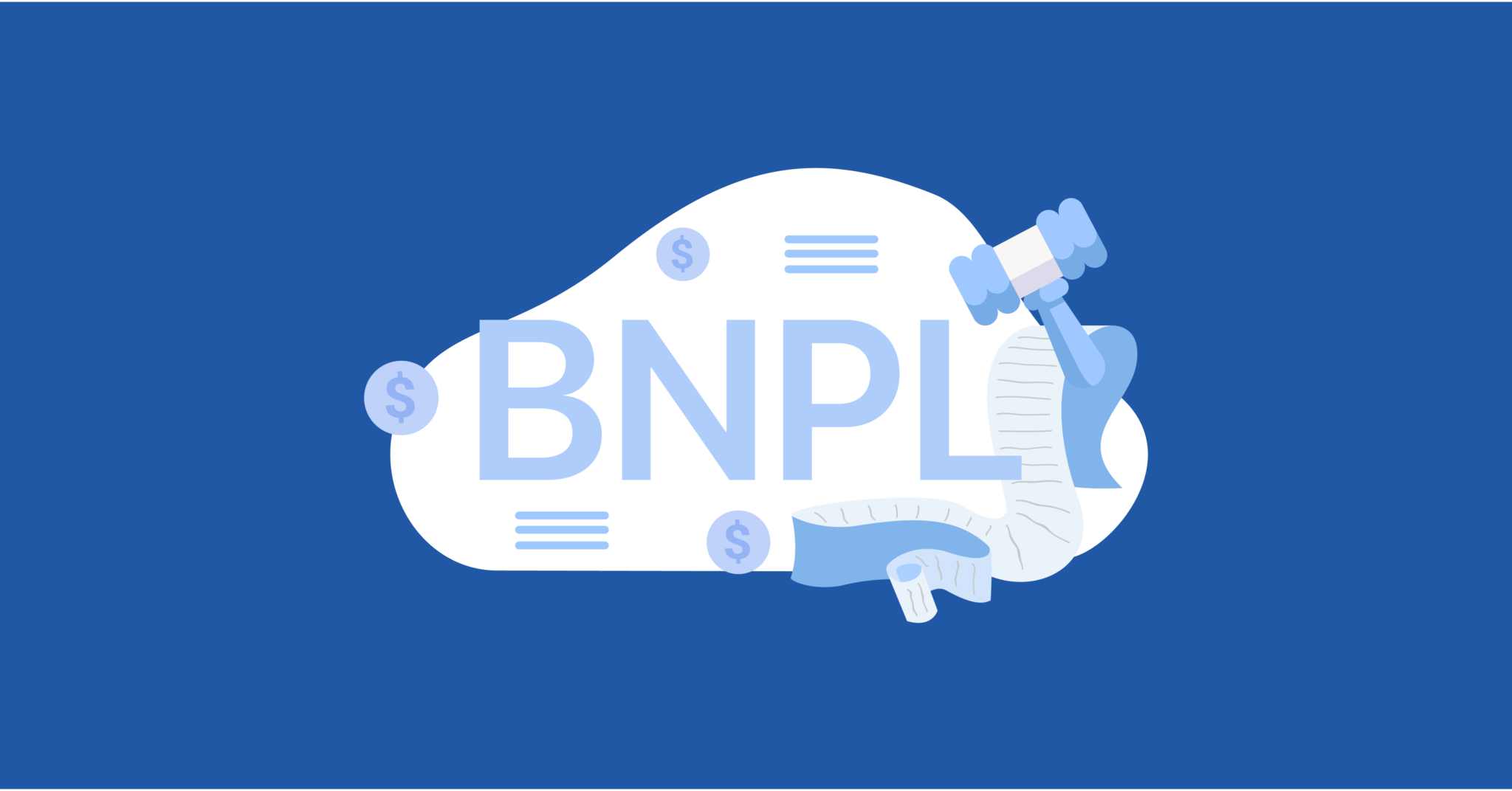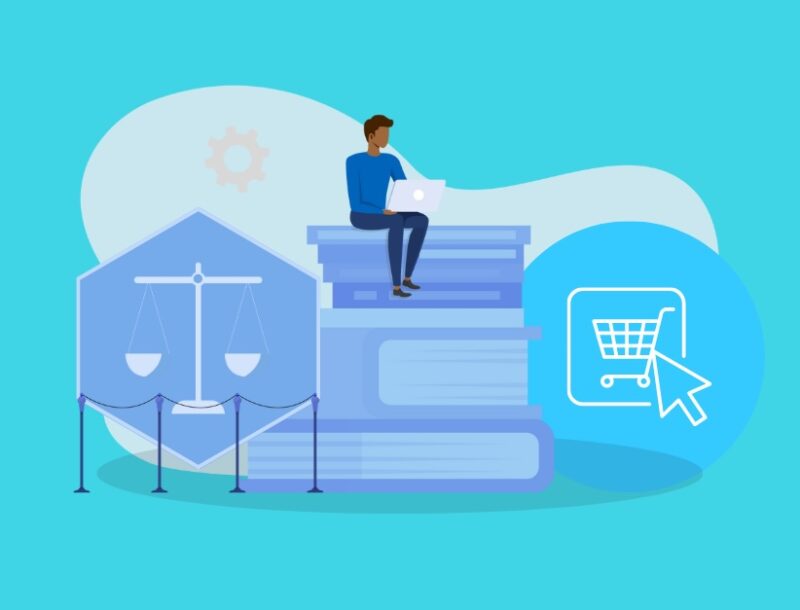The State of the BNPL Industry and Regulations

BNPL Market Trends
The BNPL market is expected to grow by over 300% by 2027. Consumers are shifting from credit cards and leaning on BNPL options to finance their purchases. Credit card debt has fallen to “unprecedented” levels, down 10% from 2019 in the U.S. In Australia, credit card usage decreased 6.6% in the last financial year-ditching more than 100,000 cards and bringing the level of valid credit cards back to levels not seen since 2009.
Almost 40% of American consumers, across multiple generations, have used BNPL services. The highest usage coming from those in the Millennial generation, who are currently 25-40 years old. While consumers prefer BNPL products over traditional credit cards for several reasons, the top reasons include avoiding credit card interest, the ability to afford bigger-ticket items, and to borrow money without a credit card.
Compliance Obligations for BNPL Companies
Domestic Implications
Just like traditional credit and lending, BNPL is subject to federal and state regulations, such as TILA, Regulation Z, CARD Act, UDAAP, and FTC Act.
- The Truth in Lending Act (TILA) protects consumers against inaccurate and unfair credit billing and credit card practices. It requires lenders to provide consumers with loan cost information so that they can comparison shop for certain types of loans and make informed decisions.
- Regulation Z under the Truth in Lending Act restricts certain lending practices and protects consumers from misleading lending practices.
- Under the CARD Act, a card issuer must not open a credit card account for a consumer under an open-end (not home-secured) consumer credit plan, or increase any credit limit applicable to such account, unless the card issuer considers the consumer’s ability to make the required minimum periodic payments under the terms of the account based on the consumer’s income or assets and the consumer’s current obligations.
- UDAAP and Section 5 of the FTC Act prohibit unfair, deceptive, or abusive acts or practices in the consumer financial marketplace.
Although different from credit cards, BNPL companies must consider the consumer’s ability to repay when issuing loans. And, while the BNPL space isn’t formally regulated by governing agencies in the United States, there have been a few enforcement actions against these organizations.
Back in 2020, the California Department of Financial Protection and Innovation (then known as the Dept for Business Oversight or “DBO”) took several actions against BNPL companies for issuing illegal loans, referring back to the California Civil Code which defines a loan as “a contract by which one delivers a sum of money to another, and the latter agrees to return at a future time a sum equivalent to that which they borrowed.”
As part of this, the DFPI concluded that point-of-sale (buy-now-pay-later) financing transactions may be deemed loans when:
- The consumer, merchant, and third-party financer treat the transactions like loans, despite contradictory language in the applicable contracts;
- The relationship between merchant and third-party financer is extensive;
- The role of the third-party financer and all financing terms are not clearly disclosed to the consumer; and
- The financing transaction is not otherwise regulated.
International Implications
In June 2019, the U.K’s Financial Conduct Authority (FCA) published its Policy Statement with final rules relating to the BNPL market, which includes:
- Firms cannot charge backdated interest on amounts of money that have been repaid by the consumer during the BNPL offer period.
- Firms have to provide better information to consumers about BNPL offers. The information should be more balanced and appropriately reflect the risks as well as the benefits of the product.
- Firms must give prompts to consumers, to remind them when the offer period is about to end, so that consumers are more likely to repay the credit before they incur interest.
Even more recently, in February 2021, the FCA has called for BNPL to be fully brought into financial services regulation.
Buy-now-pay-later can be a helpful way to manage your finances but it’s important that consumers are protected as these agreements become more popular. By stepping in and regulating, we’re making sure people are treated fairly and only offered agreements they can afford – the same protections you’d expect with other loans.
—John Glen, UK Economic Secretary of the Treasury
While the timing of when BNPL products will officially be brought into regulation isn’t finalized, the Committee of Advertising Practice (CAP) has released guidance about marketing communications for delayed payment services-those who are not currently governed by the FCA. This guidance is relevant to not only the BNPL providers themselves but the merchants incorporating their services into their online checkout as well.
Access the full guidance document here-but here are a few key rules to note:
- Marketing material must not mislead or be likely to do so
- Marketing communications must not mislead the consumer by omitting material information, or presenting it in an unclear, unintelligible, ambiguous or untimely manner
- Marketing communications must state significant limitations and qualifications
- Qualifications may clarify but must not contradict the claims that they qualify, and must presented clearly.
- Offers of financial products must be set out in a way that allows them to be understood easily by the audience being addressed.
- Marketers must ensure that they do not take advantage of consumers’ inexperience or credulity
- Marketing communications should state the nature of the contract being offered, any limitation, expense, penalty or charge and the terms of withdrawal
Although these above guidances and regulations do not come from regulators in the U.S, they are important to note for a few reasons:
- They can serve as a framework for U.S. companies and their compliance efforts in order to avoid any potential future regulatory scrutiny
- Following this guidance can help ensure compliance with UDAAP standards in the U.S. by avoiding any unfair, deceptive, or abusive acts or practices
- It’s not unlikely that the U.S. would follow lead on the regulation of BNPL products-think GDPR that started in the EU and soon made its way over
Be Proactive with Your Consumer Protection and Compliance Efforts
Although changes in the regulatory environment for the buy-now-pay-later industry are ongoing, you can Be the Exception by proactively protecting consumers and in turn protect your organization from potential regulatory risk.
Automate and scale the monitoring of your merchant partners for regulatory and brand compliance using PerformLine’s omni-channel platform. PerformLine takes the heavy lifting out of compliance with automation and ready-to-use rulebooks that cover lending and consumer protection regulations that can help those in the BNPL industry be ahead of the pack.
Learn more about how your company can be proactive in mitigating risks with PerformLine.


